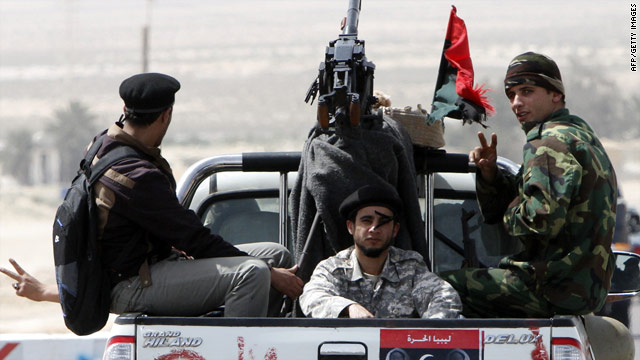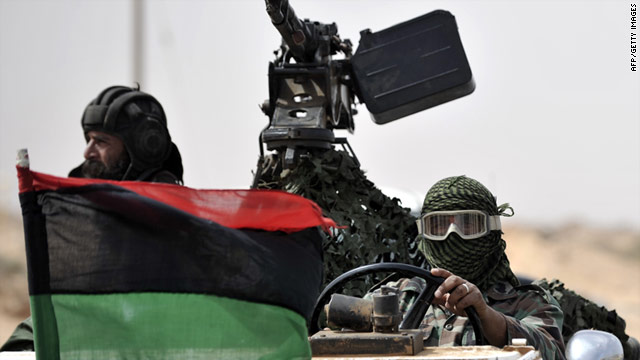By the CNN Wire Staff
March 31, 2011 -- Updated 0314 GMT (1114 HKT)
Austere conditions for Fukushima workers
STORY HIGHLIGHTS
- NEW: Radiation in seawater now 4,385 times normal level, an official says
- An analysis says Tokyo Electric will compensate 1 trillion to 10 trillion yen
- The Tokyo Electric chairman says the company must decommission four reactors
- The IAEA finds high radiation levels in a town outside the evacuation zone
Tokyo (CNN) -- The level of radiation in ocean waters off Japan's embattled Fukushima Daiichi plant has risen to new highs -- measuring 4,385 times the standard -- an official with Japan's nuclear and industrial safety agency said Thursday.
The samples, taken Wednesday from a monitoring post 330 meters (361 yards) into the Pacific Ocean, marked a significant increase from the previous day's news that the same I-131 isotope was 3,355 times the regulatory limit. Just last Friday, the radiation levels were 104 times times more than a typical level.
The seawater contamination is suspected to be a direct result of problems at the plant, which has been in an evolving state of crisis since suffering major damage since the March 11 earthquake and subsequent tsunami. But utility and government officials have said they have yet to pinpoint the exact source of the radiation spikes, including if it is from airborne or direct spillage of highly radioactive liquid into the sea.
Officials have said then that they do not believe that amount of radiation poses a health risk to humans eating seafood, especially since there is no fishing allowed within 20 kilometers (12 miles) of the plant. Their rationale is that the isotope loses half its radiation every eight days, and should further dilute over time in the seawater.
Water has been a key weapon in the battle to stave off a meltdown at the facility. Workers have pumped and sprayed tons of water to keep the plant's radioactive fuel from overheating, and the plant is running out of room to store the now-contaminated liquid.




"They have a problem where the more they try to cool it down, the greater the radiation hazard as that water leaks out from the plant," said Jim Walsh, an international security expert at the Massachusetts Institute of Technology.
The chairman of the Japanese company that owns the crippled Fukushima Daiichi nuclear plant said Wednesday it has no choice but to decommission four of the plant's six reactors.
Tsunehisa Katsumata, chairman of Tokyo Electric Power Co., made the comment in a news conference as workers struggled to keep the reactors cool and prevent the further spread of radiation from the earthquake- and tsunami-stricken plant.
"Looking at current conditions, I have to say there are no options other than decommissioning reactors 1-4," Katsumata said.
He also said he is aware the Japanese government is considering nationalizing the company in the wake of the disaster, but "we want to make every effort to stay a private company."
The company's stock has plunged in recent weeks, with the crisis taking a significant toll on both its reputation and bottom line beyond the plant complex.
A Bank of America Merrill Lynch report, written by analyst Yusuke Ueda and distributed Tuesday, estimates Toyko Electric will face compensation claims of 1 trillion Japanese yen (about $12.13 billion) if the recovery effort takes two months, the financial firm's Tokyo spokesman Takayuki Inoue told CNN on Thursday. That figure would rise to 2.4 trillion to 3 trillion yen if the process takes six months, and up to 10 trillion yen if the recovery takes two years, according to the report.
Meanwhile, the utility company -- one of the world's largest of its kind -- is facing growing criticism at home. About 80 people demonstrated Wednesday outside the company's headquarters to voice frustration with how Tokyo Electric has addressed the crisis and to generally rail against the use of nuclear power.
"I was worried about nuclear plants before this incident, but specialists have been saying that nuclear power is safe," said protester Atsuko Washida. "But now the specialists have said this accident was beyond even their expectations, so now I don't trust them ... if TEPCO (Tokyo Electric) had been putting all their investments in natural power, then TEPCO would not put so many people in danger. I wanted to tell TEPCO this. That's why I'm here."



RELATED TOPICS
But the power company has been getting new help. A French nuclear group, Areva, has sent five specialists who are experts in treating contaminated water to Japan to assist, the group said Wednesday.
The U.S. Department of Energy has deployed about 40 people and more than 17,000 pounds of equipment to Japan to help with the crisis, said Peter Lyons, the department's acting assistant secretary for nuclear energy.
The equipment includes an aerial system to measure radiological contamination on the ground, Lyons said. The system has already been collecting data and shows no evidence of significant new releases of radiation between March 19 and 29, Lyons said.
As a result of the crisis, the Japanese government Wednesday ordered immediate safety upgrades at all nuclear power plants in the country, according to the Nuclear and Industrial Safety Agency.
The measures will include inspecting devices and equipment to gauge their ability to withstand a disaster; running a drill under an emergency scenario in which cooling systems are lost; and ensuring access to an alternative power source. Long-term measures include building coastal levees to protect from tsunamis and installing watertight doors.
Wind and rain on Thursday prevented the start of another method to address the problem -- the spraying of a solution to prevent the scattering of nuclear -- a Tokyo Electric official said Thursday.
The solution comprises water and a synthetic resin known as Kuricoat C-720G, which envelops the particles and also adheres to other particles, such as dust. It will be sprayed on the grounds and on the sides of the reactors at the Daiichi plant. If the three-week test is successful, the spraying will continue for as long as necessary, the company said in a statement.
The International Atomic Energy said Wednesday that radiation levels in a town outside the evacuation zone have exceeded one of the criteria for evacuation.
The agency said it advised Japan "to carefully assess the situation."
The elevated levels were found in Iitate, a town of 7,000 residents about 40 kilometers (25 miles) northwest of the Fukushima Daiichi plant, the agency said.
The agency did not say what levels it found in Iitate, but the environmental group Greenpeace said Sunday it had found radiation levels in the town that were more than 50 times above normal.
Though that is far below the level that would cause radiation sickness, it does pose a risk of cancer to residents in the long term, Greenpeace said.
Kobayashi Takashi, Iitate's manager for general affairs, said radiation levels of soil and water there were decreasing. Residents temporarily evacuated, but later returned to take care of livestock, he said.
The findings came amid fresh concerns Wednesday about whether the government was doing enough to enforce the evacuation area -- and whether that area should expand.
Chief Cabinet Secretary Yukio Edano said the federal government was weighing a proposal from officials in Fukushima Prefecture, who asked authorities to tighten their restrictions in the evacuation zone.
Proposed rules would stop residents from returning to their homes and force any who remain to leave. So far, residents have been advised, but not forced, to evacuate.
Greenpeace said the government's evacuation zone is not large enough, citing the radiation levels in Iitate. Levels detected "would give someone living there ... the maximum annual dose in about 100 hours," if they're outside, according to Greenpeace.
"We see no contradiction between our data and the official data from the local government, however we see a contradiction between those figures and the lack of action by authorities to protect the people," said Jan van de Putte, a radiation safety specialist for Greenpeace.
CNN's Kyung Lah, Paula Hancocks, Jiyeon Lee, Yoko Wakatsuki, Ingrid Formanek, Whitney Hurst, Tim Schwarz and Ram Ramgopal contributed to this report










